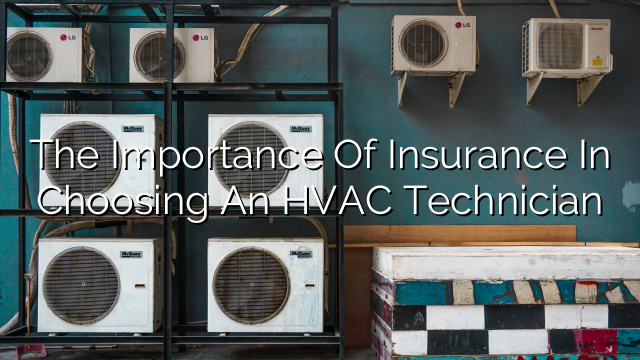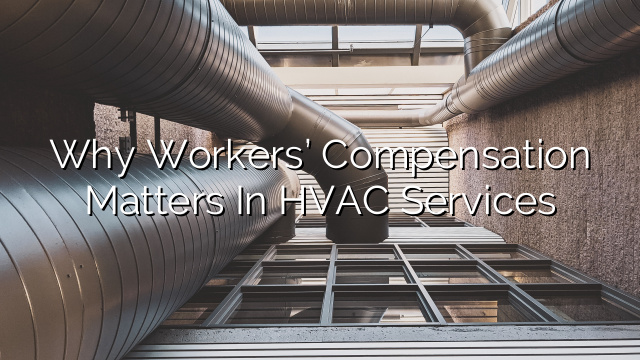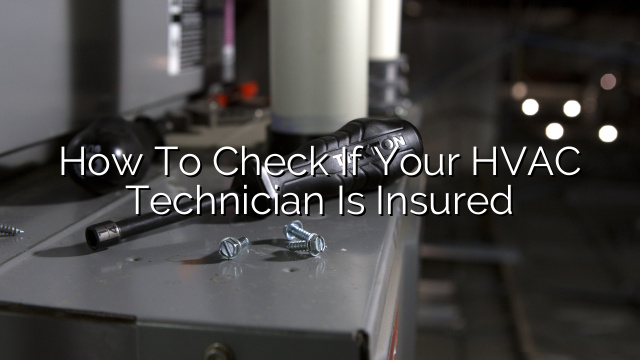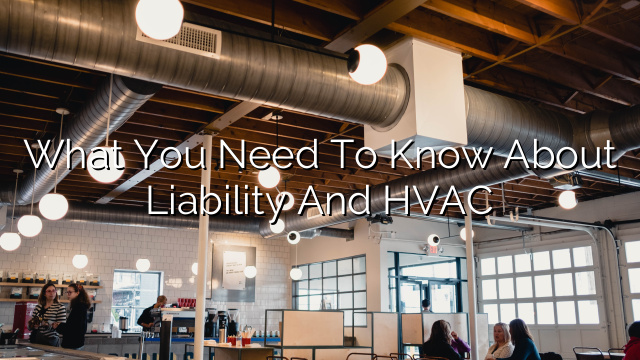Understanding the Importance of Insurance for HVAC Technicians
As an HVAC technician, you understand the complexities of heating, ventilation, and air conditioning systems. However, navigating the world of insurance might seem daunting. Proper insurance not only offers peace of mind but also serves as a backbone for your business’s financial security. In this post, we will guide you through the essentials of insurance coverage and how you can maximize protection for your HVAC business.
Assessing Your Insurance Needs
Before you begin comparing insurance policies, it’s crucial to assess your specific needs. Start by considering the types of jobs you take on, the value of your equipment, and the inherent risks of your profession. Different HVAC technicians may require different levels of coverage based on their business size, location, and services provided.
Types of Insurance for HVAC Technicians
There are several types of insurance that HVAC technicians should consider to ensure comprehensive coverage:
General Liability Insurance
- Protection Against Claims: General liability insurance is the foundation of an HVAC technician’s insurance portfolio. It protects against third-party claims for bodily injury, property damage, and personal injury.
- Examples: If a customer trips over your tools and is injured, or if you accidentally cause damage to a client’s property, this insurance can cover the costs associated with these claims.
Commercial Property Insurance
- Equipment & Property Coverage: This type of insurance covers the physical assets of your business, including your tools, equipment, and possibly your business premises if you own the space.
- Risks Mitigated: Commercial property insurance is crucial if you suffer a loss due to fire, theft, vandalism, or natural disasters.
Professional Liability Insurance
- Errors and Omissions: Also known as E&O insurance, it protects against claims of negligence or mistakes in your professional services.
- Essential for: HVAC technicians who design systems or offer consultation services, as it provides protection if a design flaw or incorrect advice leads to a financial loss for a client.
Workers’ Compensation Insurance
- Employee Protection: If you have employees, most states will require you to have workers’ compensation insurance. It covers medical expenses, lost wages, and rehabilitation costs if an employee is injured on the job.
- Legal Requirement: Not having workers’ compensation can result in hefty fines and even criminal charges in some cases.
Commercial Auto Insurance
- Vehicles Coverage: For HVAC technicians who use vehicles for work, commercial auto insurance is essential. It covers vehicle-related damages and liability issues that may arise from accidents.
Business Interruption Insurance
- Loss of Income: In the event that your business operations are interrupted due to a covered loss, this insurance can help replace lost income and pay for ongoing expenses while you’re unable to work.
Maximizing Your Insurance Coverage
Once you’re familiar with the types of insurance available, employ these strategies to ensure you’re fully protected:
Bundle Policies for Better Rates
Consider bundling your insurance policies with a single provider. Known as a Business Owner’s Policy (BOP), this approach often results in lower premiums and simplifies policy management.
Assess Your Coverage Limits and Deductibles
Ensure your coverage limits are high enough to protect your assets fully. Balance this with reasonable deductibles you can afford to pay in the event of a claim.
Maintain Accurate and Detailed Records
Keep thorough records of your equipment, jobs, and any incidents that may occur. This information will be invaluable when filing a claim or if a legal issue arises.
Stay Informed About Industry Changes
The HVAC industry continually evolves with new technologies and regulations. Staying up-to-date can help you adjust your insurance coverage as needed and remain compliant with laws affecting insurance requirements.
Consider Endorsements for Additional Coverage
Endorsements, also known as riders, can provide additional coverage tailored to the unique aspects of your HVAC business. Discuss these options with your insurance provider.
Choosing the Right Insurance Provider
Selecting an insurance provider is just as important as the coverage itself. Consider the following when choosing your insurer:
Reputability and Financial Stability
Pick a provider with a good reputation and strong financial stability, ensuring they can cover claims when needed.
Industry Experience
Providers with experience in the HVAC industry will be more likely to understand your business’s unique needs.
Quality of Customer Service
Good customer service can make or break your experience, especially when filing claims or asking for assistance.
Flexibility and Customization
Choose a provider that offers flexible and customizable insurance solutions, allowing you to get coverage that best fits your business.
FAQ Section
Why do HVAC technicians need insurance?
Insurance protects HVAC technicians from unforeseen events that could result in financial loss or legal action, such as property damage, bodily injury claims, or professional errors.
What happens if an HVAC technician doesn’t have insurance?
Without insurance, an HVAC technician would have to bear the costs of any damages, legal fees, or compensation out of pocket, which may lead to significant financial hardship or even bankruptcy.
Is professional liability insurance required for all HVAC technicians?
While not always legally required, professional liability insurance is highly recommended, particularly for technicians who provide design or consulting services.
How much does HVAC technician insurance cost?
The cost of insurance for HVAC technicians varies widely based on factors such as business size, services provided, number of employees, and coverage limits selected. It’s best to get quotes from multiple insurance providers to determine the cost for your specific situation.
Can I reduce my insurance premiums?
Yes, you can potentially reduce your premiums by bundling policies, choosing higher deductibles, maintaining a good claims history, and implementing safety measures to minimize risk.










